Bangladesh government holds crisis talks
 Talks resumed on Tuesday in a bid to end violent protests over a top Bangladesh election official accused of favouring the outgoing government as a nation-wide opposition blockade entered its third day.
Talks resumed on Tuesday in a bid to end violent protests over a top Bangladesh election official accused of favouring the outgoing government as a nation-wide opposition blockade entered its third day.
The caretaker government, tasked with organising parliamentary elections slated for January, met leaders of the main parties including the outgoing Bangladesh Nationalist Party (BNP) led coalition.
The talks followed the interim government's discussions late on Monday with the main opposition Awami League and its allies, who are demanding the resignation of chief election commissioner M.A. Aziz.
The opposition alliance has accused Aziz of making the polls a foregone conclusion by drawing up an electoral list with 10 million fake voters and say they will continue with protests and a road, rail and river blockade until he is replaced.
Thousands of opposition activists again held rallies on Tuesday in Dhaka and blocked highways linking the country's main cities, raising concerns about food and other supplies, police said. The BNP also held rallies nation-wide.
Seven small bombs were hurled in a part of the capital where both the Awami League and the BNP were holding a rally.
"The devices caused panic but no-one was injured," said a police officer speaking on condition of anonymity. The private ATN Bangla television channel, said at least six people were hurt.
In the northern town of Mymensingh, nine people were admitted to hospital after groups of Awami League and BNP supporters pelted each other with rocks, said sub-inspector Altaf Hossain.
Due to the blockade, cities were being supplied with food and other essential items through overnight deliveries, while ferries on the delta nation's many rivers were not disrupted, police added.
Business leaders expressed alarm over damage to the impoverished nation's economy by the protests as deliveries to and from the country's main south-eastern Chittagong port were suspended for a third consecutive day.
"It's a catastrophic situation. The port is congested with thousands of containers as we have been able to unload them from ships but there is no way we can transport them across the country," said port chairman Shahadat Hossain.
Business chiefs also met the president, Iajuddin Ahmed, who heads the caretaker government, to urge an immediate end to the crisis.
"We are losing millions of dollars each day. Small businesses have their backs to the wall and the whole economy will face a huge slowdown if this is not stopped," said Mir Nasir Hossain, president of the Federation of Bangladesh Chambers of Commerce and Industry.
The opposition has said fair elections cannot be held with Aziz in place and has threatened to boycott the polls if he is not removed.
One man died and dozens were injured on Monday in a clash between opposition supporters and riot police in the capital.
Four days of clashes between rival parties after the government's mandate expired late last month left 25 people dead as the opposition staged protests against the government's choice for the post of head of the caretaker government.
The opposition said it would not accept former Supreme Court judge K.M. Hasan as the interim chief, accusing the former BNP official of being biased in favour of the outgoing government.
After the protests led to Hasan declining the post, the president named himself as head of the temporary government October 29.
The Awami League agreed to end its protests, saying they would be resumed if the president failed to prove his neutrality as head of the non-party administration by sacking Aziz.
The party called fresh street protests and an indefinite transport blockade from Sunday after Aziz remained in place.
Prime Minister Khaleda Zia's BNP led the four-party Islamist-allied government until its mandate ran out October 27. The caretaker government took over two days later.

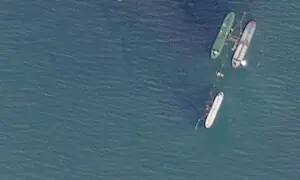

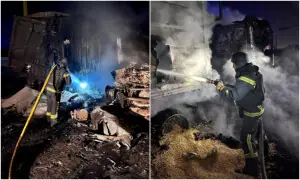
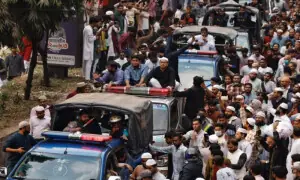
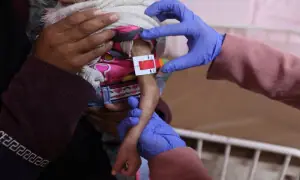
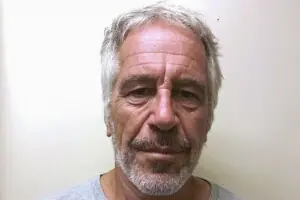

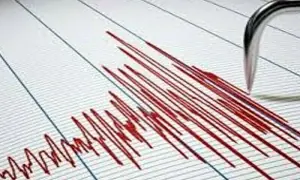
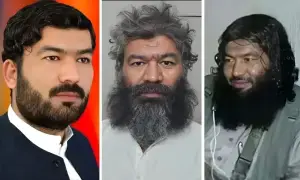
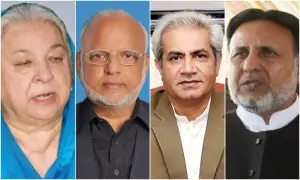
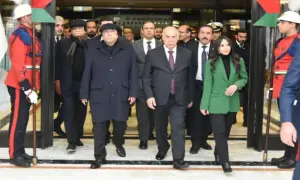
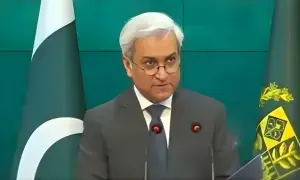
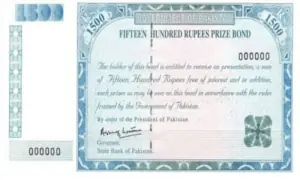
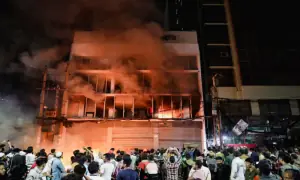
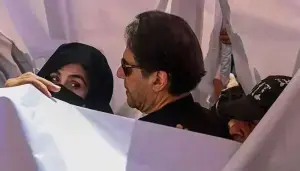
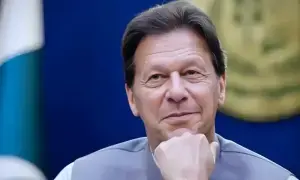
Comments are closed on this story.